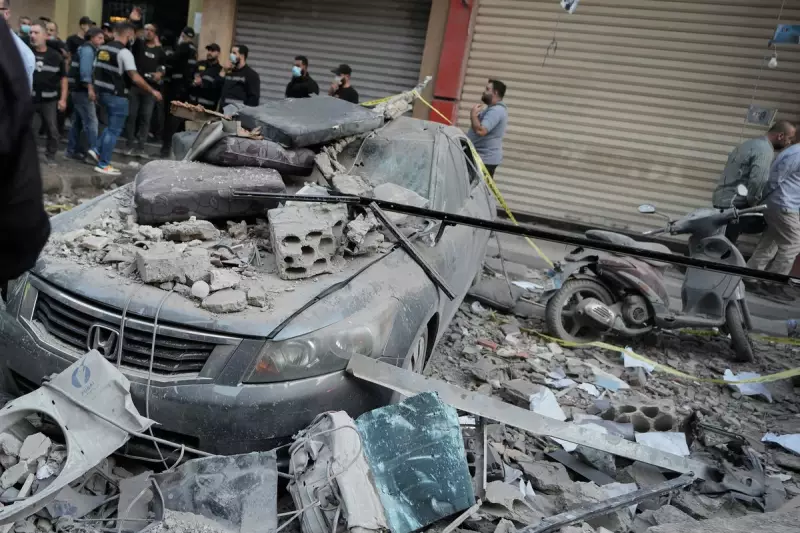
Lebanon's Prime Minister has launched a rare and forceful public criticism against the militant group Hezbollah, condemning its failure to disarm and stating that its arsenal is failing to protect the nation. The rebuke comes as Israel conducts a fresh wave of airstrikes within Lebanese territory, escalating regional tensions.
Mounting Tensions and Military Strikes
On Thursday, Israeli forces carried out another series of airstrikes on sites in southern Lebanon suspected of being linked to Hezbollah. The Israeli military stated the strikes targeted and dismantled Hezbollah infrastructure, including weapons storage facilities.
This latest military action follows a significant escalation earlier in the week, which saw a rare Israeli strike in Lebanon's capital, Beirut, resulting in the death of a senior Hezbollah chief of staff. This event marked a serious intensification of the conflict beyond the southern border regions.
A Leader's Public Condemnation
In a bold move, Lebanese Prime Minister Nawaf Salam directly challenged Hezbollah's core justification for maintaining its weapons. Speaking through the state-run National News Agency, Salam argued that the group's arms have proven ineffective.
"Hezbollah says its weapons are deterring an aggression. Deterrence means preventing the enemy from carrying out an aggression, but it (Israel) is attacking and the weapons are not deterring it," Salam stated. He emphasised that this situation ultimately harms the Lebanese people, who are still struggling to recover from a devastating 14-month war with Israel that ended with a ceasefire just one year ago.
This public criticism from the Prime Minister occurs as the United States and Israel increase pressure on the Lebanese government to disarm the powerful militant group, which operates as a state-within-a-state.
Regional Spillover and Wider Conflict
The violence in Lebanon is unfolding against a backdrop of broader regional instability. Concurrently, Israel has initiated a new offensive in the West Bank. According to a Palestinian advocacy group, Israel's military has detained at least 119 people in the Tubas region since an operation began on Tuesday.
Abdullah al-Zaghari, a spokesman for the Palestinian Prisoners' Club, reported that 27 detainees were later released and accused the military of severe beatings. The Israeli military defended its actions as a response to attempts to establish "terrorist strongholds" in the area.
These ongoing conflicts are fuelling international concerns that the unrest could undermine the fragile truce in Gaza and trigger a wider regional confrontation. The situation is particularly sensitive with Pope Leo XIV scheduled to visit Lebanon imminently, although his itinerary will not include the heavily damaged south of the country.





